ANTARCTIC/TERRA NOVA EXPEDITION/LAWRENCE EDWARD GRACE OATES (1880-1912) A Peal & Co. trunk, of natural cow hide with brass rivets, side carrying handles, cow hide straps with brass buckles, with black lettering on the lid "L.E.G.OATES. INNISKILLING DRAGOONS", the interior cloth-lined, 28 x 16 x 18in. Provenance: Caroline Oates; Violet Oates and Lot 203 Christies Exploration and Travel September 1998. A MEMENTO OF OATES, recalling his service in the 6th (Inniskilling) Dragoon Guards. He had risen to the rank of Captain by the time the regiment gave him leave so that he could take part in Scott's second expedition. "I am just going outside and may be some time." With these immortal words, Antarctic explorer Capt Lawrence Oates set out to meet his death 109 years ago, aged 31, and entered the history books. He was one of five men who died as they tried to return home from Robert Falcon Scott's ill-fated expedition to the South Pole in 1912. In 1910, he applied to join Robert Falcon Scott's expedition to the South Pole-the Terra Nova expedition-and was accepted mainly on the strength of his experience with horses and, to a lesser extent, his ability to make a financial contribution of £1,000 towards the expedition. Nicknamed "the soldier" by his fellow expedition members, his role was to look after the 19 ponies that Scott intended to use for sledge hauling during the initial food depot-laying stage and the first half of the trip to the South Pole. Scott eventually selected him as one of the five-man party who would travel the final distance to the Pole. Oates disagreed with Scott many times on issues of management of the expedition. "Their natures jarred on one another", expedition member Frank Debenham recalled.When he first saw the ponies that Scott had brought on the expedition, Oates was horrified at the £5 animals, which he said were too old for the job and "a wretched load of crocks."He later said: "Scott's ignorance about marching with animals is colossal."[This quote needs a citation] He also wrote in his diary "Myself, I dislike Scott intensely and would chuck the whole thing if it were not that we are a British expedition ... He is not straight, it is himself first, the rest nowhere ..." However, he also wrote that his harsh words were often a product of the hard conditions. Scott, less harshly, called Oates "the cheery old pessimist", adding: "the Soldier takes a gloomy view of everything, but I've come to see that this is a characteristic of him. According to Scott's diary entry of 16 or 17 March (Scott was unsure of the date but thought the 16th correct) Oates had walked out of the tent the previous day into a −?40 °F (−?40 °C) blizzard to his death. Scott wrote in his diary: "We knew that poor Oates was walking to his death, but though we tried to dissuade him, we knew it was the act of a brave man and an English gentleman." Scott, Wilson and Bowers continued onwards for a further 20 miles (32 km) towards the One Ton food depot that could save them but were halted at latitude 79° 40' S by a fierce blizzard on 20 March. Trapped in their tent and too weak and cold to continue, they died nine days later, eleven miles (18 km) short of their objective. Their frozen bodies were discovered by a search party on 12 November; Oates's body was never found. Near where he was presumed to have died, the search party erected a cairn and cross bearing the inscription: "Hereabouts died a very gallant gentleman, Captain L. E. G. Oates, of the Inniskilling Dragoons. In March 1912, returning from the Pole, he walked willingly to his death in a blizzard, to try and save his comrades, beset by hardships.
ANTARCTIC/TERRA NOVA EXPEDITION/LAWRENCE EDWARD GRACE OATES (1880-1912) A Peal & Co. trunk, of natural cow hide with brass rivets, side carrying handles, cow hide straps with brass buckles, with black lettering on the lid "L.E.G.OATES. INNISKILLING DRAGOONS", the interior cloth-lined, 28 x 16 x 18in. Provenance: Caroline Oates; Violet Oates and Lot 203 Christies Exploration and Travel September 1998. A MEMENTO OF OATES, recalling his service in the 6th (Inniskilling) Dragoon Guards. He had risen to the rank of Captain by the time the regiment gave him leave so that he could take part in Scott's second expedition. "I am just going outside and may be some time." With these immortal words, Antarctic explorer Capt Lawrence Oates set out to meet his death 109 years ago, aged 31, and entered the history books. He was one of five men who died as they tried to return home from Robert Falcon Scott's ill-fated expedition to the South Pole in 1912. In 1910, he applied to join Robert Falcon Scott's expedition to the South Pole-the Terra Nova expedition-and was accepted mainly on the strength of his experience with horses and, to a lesser extent, his ability to make a financial contribution of £1,000 towards the expedition. Nicknamed "the soldier" by his fellow expedition members, his role was to look after the 19 ponies that Scott intended to use for sledge hauling during the initial food depot-laying stage and the first half of the trip to the South Pole. Scott eventually selected him as one of the five-man party who would travel the final distance to the Pole. Oates disagreed with Scott many times on issues of management of the expedition. "Their natures jarred on one another", expedition member Frank Debenham recalled.When he first saw the ponies that Scott had brought on the expedition, Oates was horrified at the £5 animals, which he said were too old for the job and "a wretched load of crocks."He later said: "Scott's ignorance about marching with animals is colossal."[This quote needs a citation] He also wrote in his diary "Myself, I dislike Scott intensely and would chuck the whole thing if it were not that we are a British expedition ... He is not straight, it is himself first, the rest nowhere ..." However, he also wrote that his harsh words were often a product of the hard conditions. Scott, less harshly, called Oates "the cheery old pessimist", adding: "the Soldier takes a gloomy view of everything, but I've come to see that this is a characteristic of him. According to Scott's diary entry of 16 or 17 March (Scott was unsure of the date but thought the 16th correct) Oates had walked out of the tent the previous day into a −?40 °F (−?40 °C) blizzard to his death. Scott wrote in his diary: "We knew that poor Oates was walking to his death, but though we tried to dissuade him, we knew it was the act of a brave man and an English gentleman." Scott, Wilson and Bowers continued onwards for a further 20 miles (32 km) towards the One Ton food depot that could save them but were halted at latitude 79° 40' S by a fierce blizzard on 20 March. Trapped in their tent and too weak and cold to continue, they died nine days later, eleven miles (18 km) short of their objective. Their frozen bodies were discovered by a search party on 12 November; Oates's body was never found. Near where he was presumed to have died, the search party erected a cairn and cross bearing the inscription: "Hereabouts died a very gallant gentleman, Captain L. E. G. Oates, of the Inniskilling Dragoons. In March 1912, returning from the Pole, he walked willingly to his death in a blizzard, to try and save his comrades, beset by hardships.



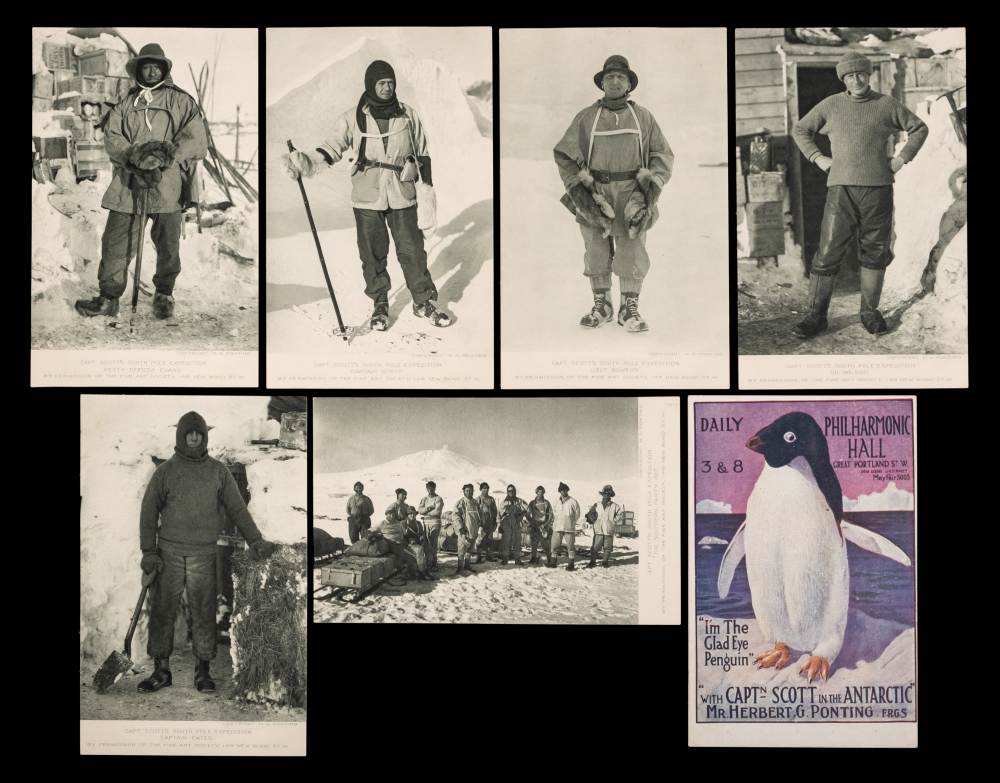
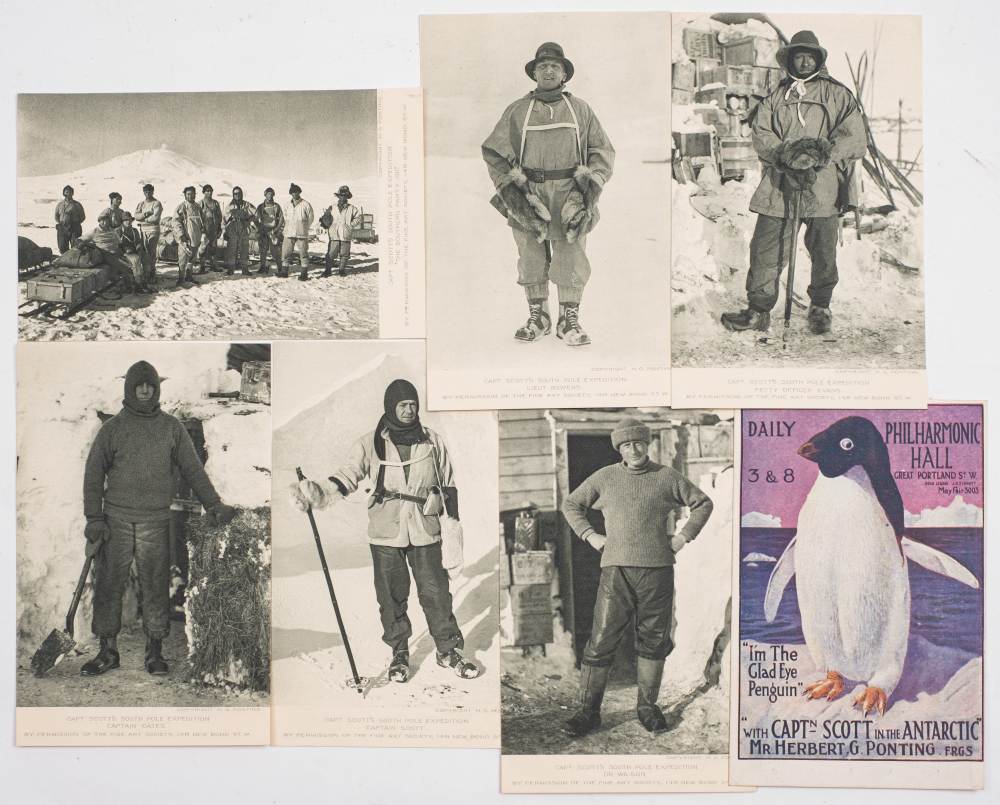
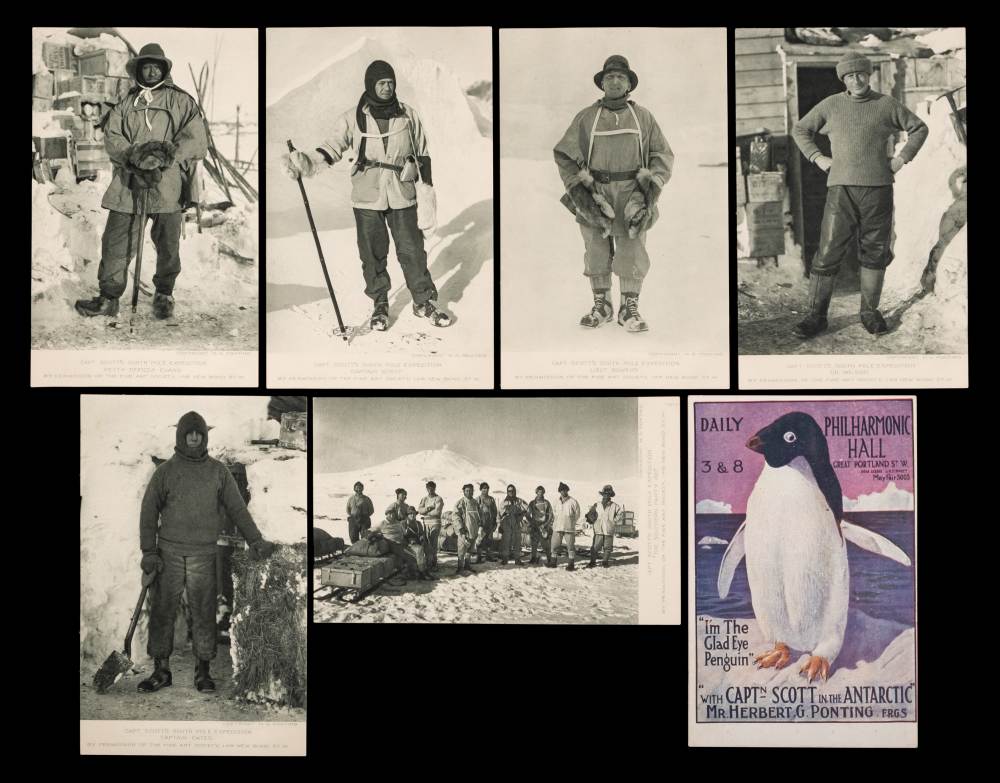



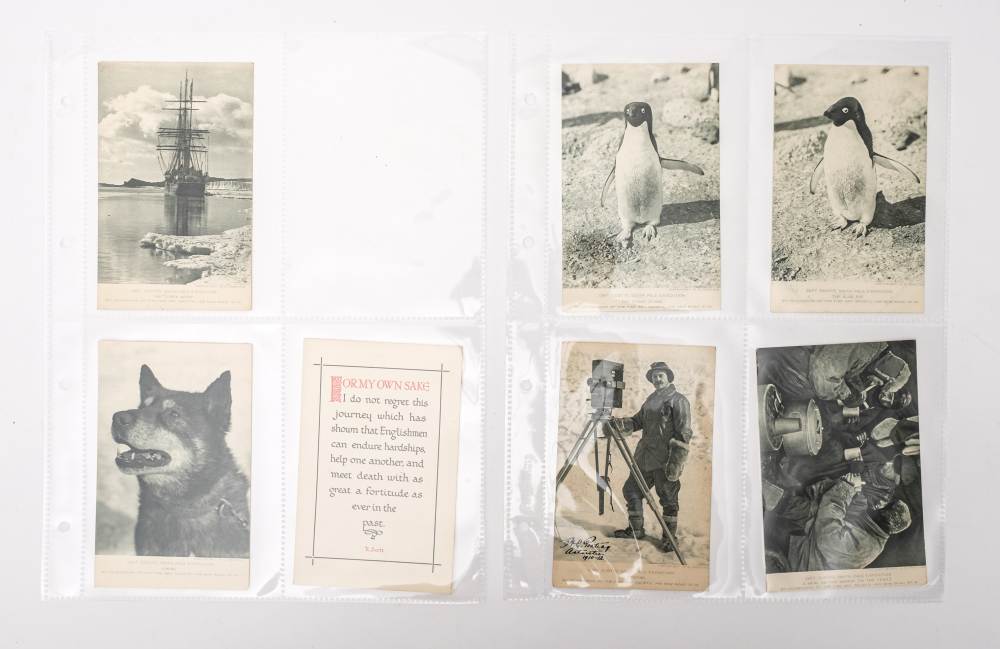
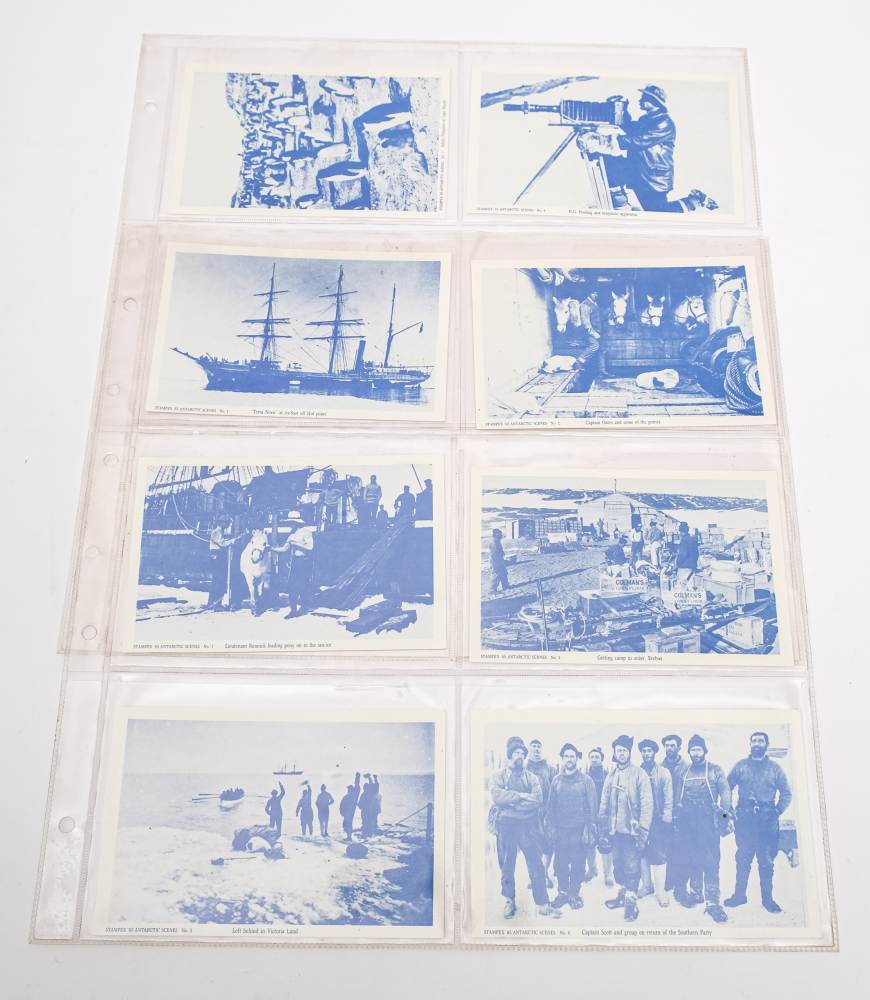

.jpg)
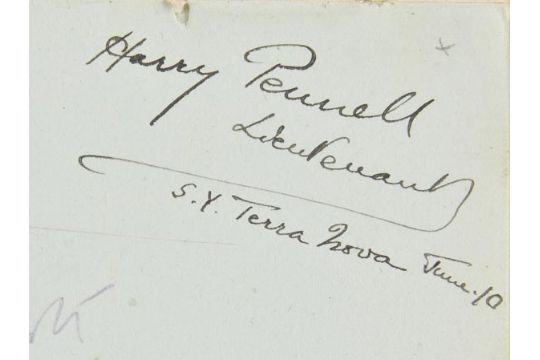

Testen Sie LotSearch und seine Premium-Features 7 Tage - ohne Kosten!
Lassen Sie sich automatisch über neue Objekte in kommenden Auktionen benachrichtigen.
Suchauftrag anlegen